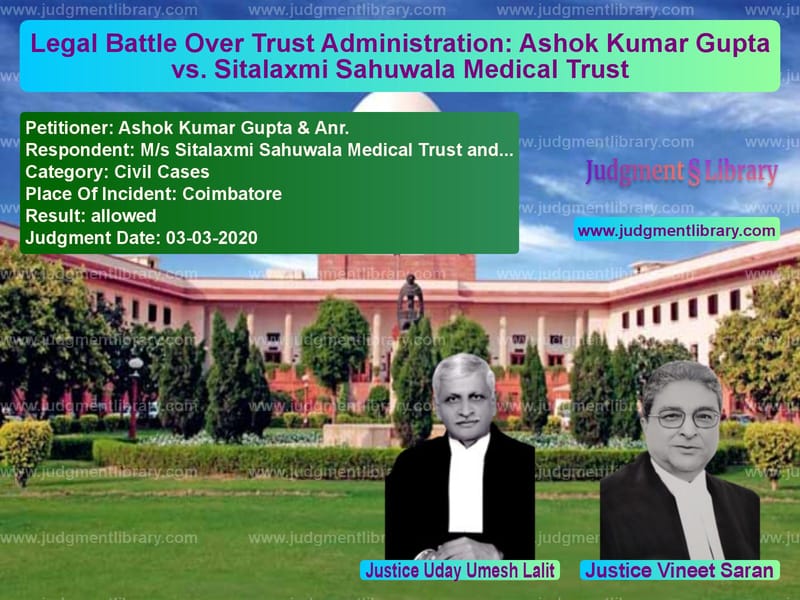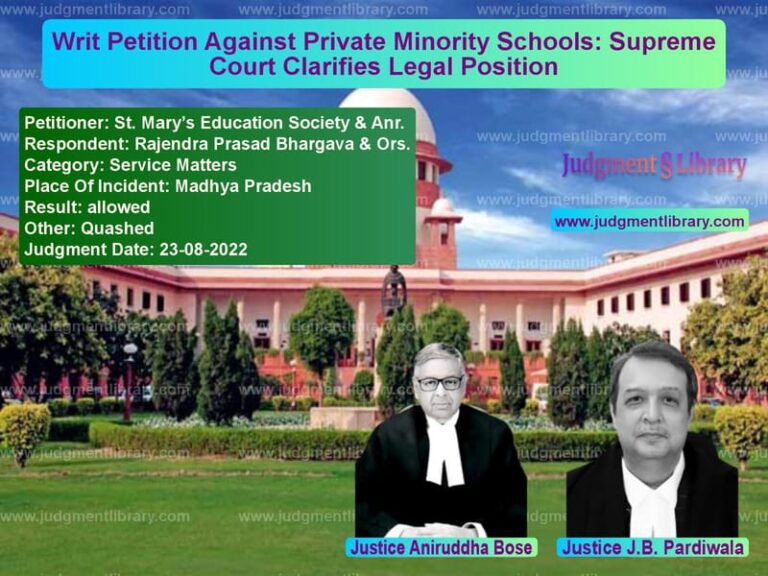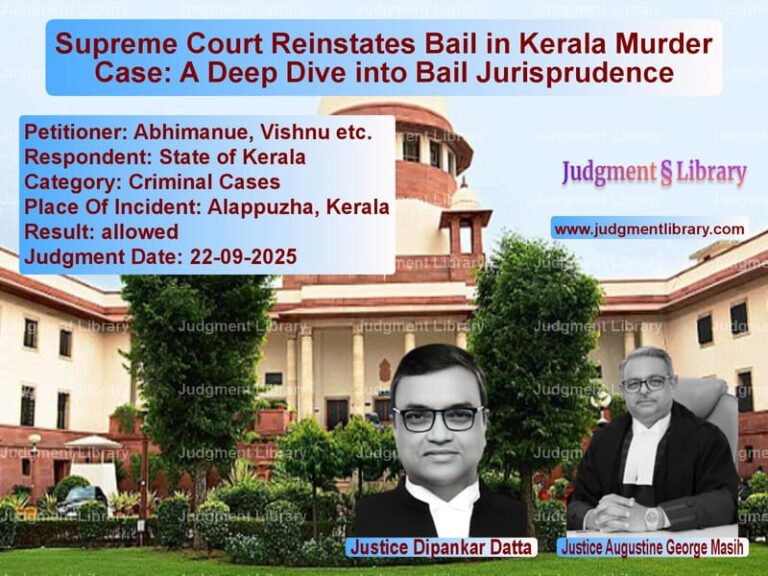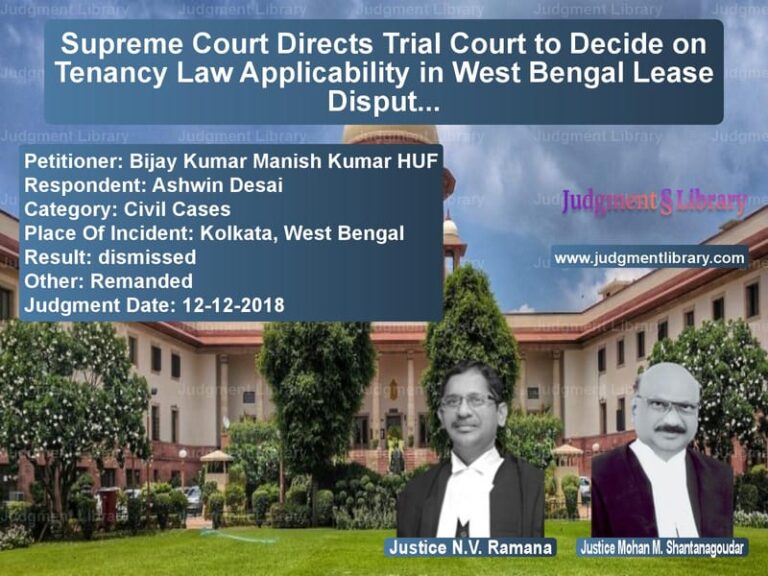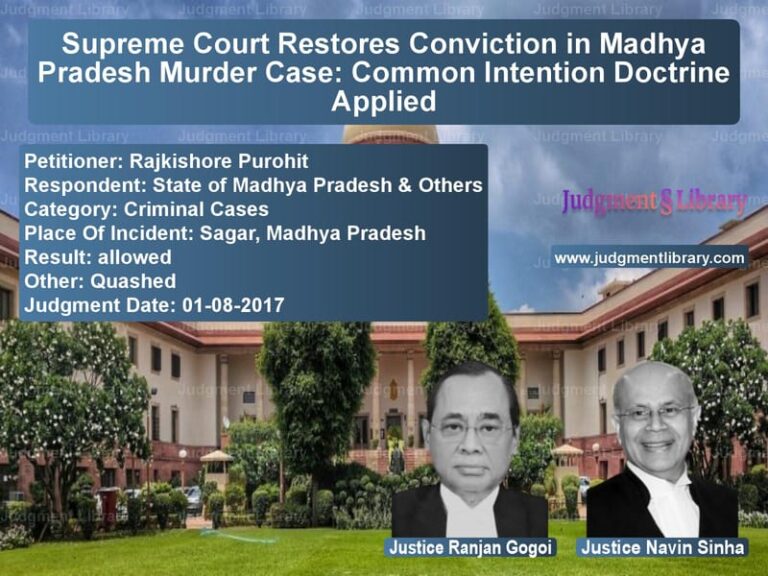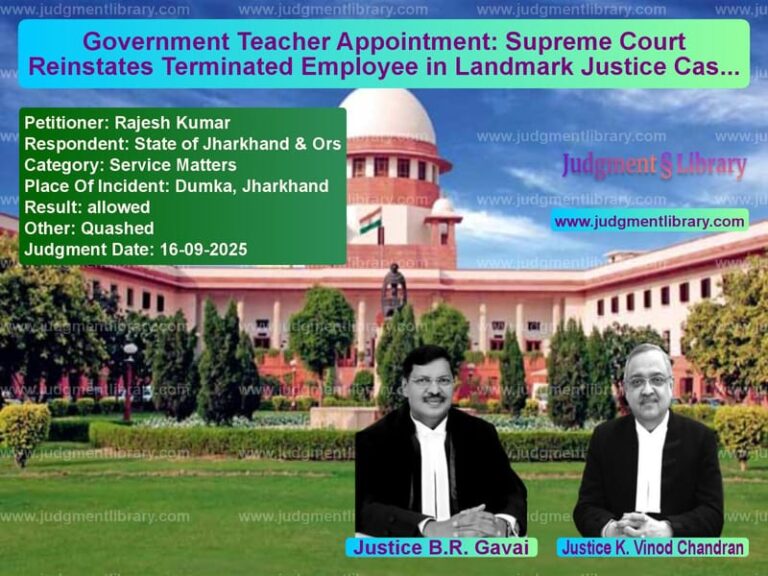Legal Battle Over Trust Administration: Ashok Kumar Gupta vs. Sitalaxmi Sahuwala Medical Trust
The case of Ashok Kumar Gupta & Anr. vs. M/s Sitalaxmi Sahuwala Medical Trust and Others is a significant dispute concerning the administration of a charitable trust. The appellants, Ashok Kumar Gupta and his wife, challenged the decisions made by the trustees of the Sitalaxmi Sahuwala Medical Trust, alleging mismanagement and deviation from the trust’s original purpose. The Supreme Court was tasked with determining whether the appellants were entitled to seek relief under Section 92 of the Code of Civil Procedure (CPC), which governs public charitable trusts.
Background of the Case
The dispute originated from the establishment of the Sitalaxmi Sahuwala Medical Trust in 1980. The trust was set up to provide medical aid to the needy, with the intention that the first appellant, a qualified surgeon, would administer the hospital. The trust deed appointed four trustees for life, including the appellants and the second and third defendants.
Key developments in the case:
- The trust purchased land and constructed a hospital in Coimbatore.
- The first appellant managed the hospital until 2003-04.
- Subsequent amendments to the trust deed changed the administrative structure.
- The appellants alleged that the fourth defendant, who lacked medical qualifications, had taken over the trust and was mismanaging its funds.
- The appellants sought a court-supervised reorganization of the trust to restore its original charitable purpose.
Petitioner’s Arguments
The appellants, represented by Mr. K.V. Vishwanathan, argued that:
- The trust had deviated from its original charitable objectives and was being run as a private family trust.
- The administration of the trust was in the hands of individuals who were not qualified medical professionals.
- The funds of the trust were being siphoned off for personal use by the trustees.
- Meetings were not being conducted properly, and resolutions were passed arbitrarily.
- A new scheme for the administration of the trust was necessary to protect its charitable purpose.
Respondent’s Arguments
The respondents, represented by Mr. Guru Krishna Kumar, contended that:
- The suit was not maintainable under Section 92 of CPC as it was based on personal grievances rather than public interest.
- The appellants were trying to assert their own rights rather than acting in the interest of the trust.
- The amendments to the trust deed were legally valid.
- The hospital continued to function in accordance with its charitable objectives.
Supreme Court’s Observations
The Supreme Court analyzed whether the appellants’ claims met the three essential conditions required to invoke Section 92 of CPC:
- The trust was created for a public charitable purpose.
- There was a breach of trust or the need for judicial intervention in its administration.
- The relief sought was consistent with those allowed under Section 92.
The Court held that the appellants’ grievances were not purely personal but concerned the proper administration of a public charitable trust. The Court also noted that the trust was originally intended to be managed by medical professionals, which was not being followed.
Supreme Court’s Judgment
The Supreme Court ruled in favor of the appellants, stating:
- The appellants had a legitimate interest in the trust’s administration.
- The trust’s current management was not fulfilling its original charitable objectives.
- There was a need for judicial oversight to ensure proper administration.
- The case fell within the scope of Section 92 of CPC.
- The High Court’s decision revoking the leave granted to the appellants was incorrect and was set aside.
Impact of the Judgment
This ruling clarifies the application of Section 92 of CPC in cases involving charitable trusts. It reaffirms that:
- Individuals with a legitimate interest in a public trust can seek judicial intervention if its administration is compromised.
- Trusts must adhere to their original charitable objectives.
- Courts can step in to protect the public interest in charitable trusts.
Conclusion
The Supreme Court’s ruling in this case underscores the importance of transparency and proper administration in charitable trusts. By reinstating the lower court’s decision, the Court ensured that public charitable trusts remain accountable and true to their intended purpose.
Petitioner Name: Ashok Kumar Gupta & Anr..Respondent Name: M/s Sitalaxmi Sahuwala Medical Trust and Others.Judgment By: Justice Uday Umesh Lalit, Justice Vineet Saran.Place Of Incident: Coimbatore.Judgment Date: 03-03-2020.
Don’t miss out on the full details! Download the complete judgment in PDF format below and gain valuable insights instantly!
Download Judgment: Ashok Kumar Gupta & vs Ms Sitalaxmi Sahuwa Supreme Court of India Judgment Dated 03-03-2020.pdf
Direct Downlaod Judgment: Direct downlaod this Judgment
See all petitions in Contract Disputes
See all petitions in Succession and Wills
See all petitions in Damages and Compensation
See all petitions in Judgment by Uday Umesh Lalit
See all petitions in Judgment by Vineet Saran
See all petitions in allowed
See all petitions in supreme court of India judgments March 2020
See all petitions in 2020 judgments
See all posts in Civil Cases Category
See all allowed petitions in Civil Cases Category
See all Dismissed petitions in Civil Cases Category
See all partially allowed petitions in Civil Cases Category

